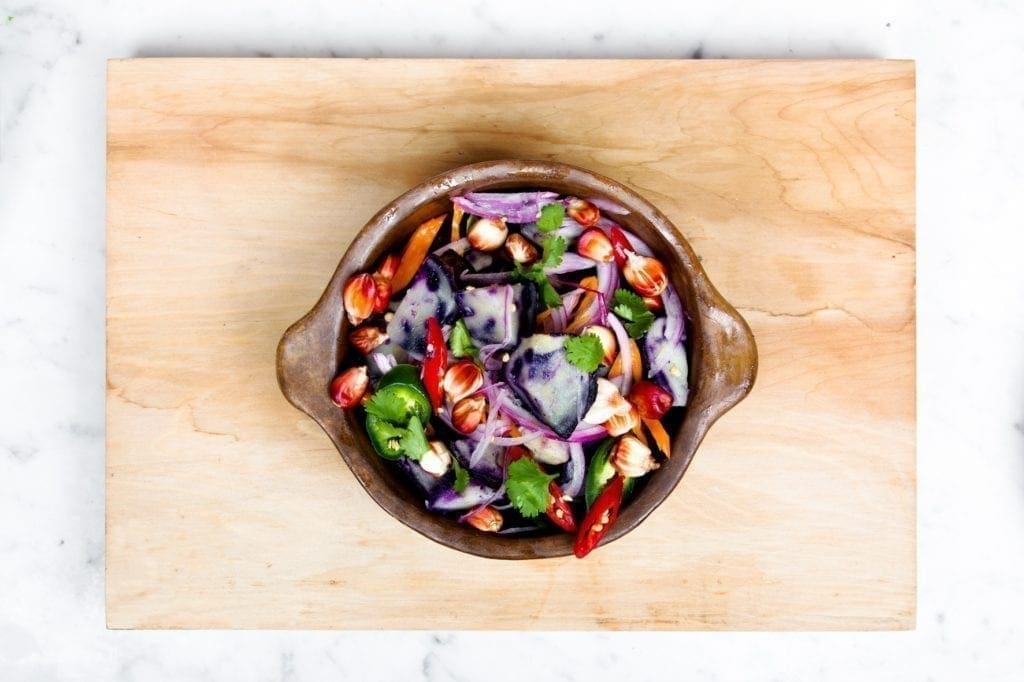Stress has become such a commonplace event in our lives that many of us consider it as normal and as unavoidable as breathing. However, there is room for the argument that while stress may be a reality for most people most of the time (or at a minimum it is present for some of the people some of the time), both the nature of stress in our modern society and our response to the new face of stress have changed in the last few decades/centuries.
So what are we to do?
For the bulk of human existence on earth stress presented itself in the daily need to find food for survival, to shelter ourselves from the elements, and to avoid turning into prey at the hands of vicious animals (at least not before we’ve had time to pass on some DNA into the next generation). For some cultures on this beautiful planet of ours, those base stresses continue. But in the last few centuries, our collective stress in the Western World has morphed into something brand new.
Food is no longer scarce but plentifully abundant, inexpensive, calorie-rich, and less nutritionally potent than in previous decades (1). Many careers and lifestyles are office-based and accordingly sedentary, meaning that our bodies that evolved to move are now needing to cope with reduced circulation and energy expenditure. Electricity allows us to deny the circadian rhythm of the planet and our bodies (point in case: the sun set about 2 hours ago, so the world outside is as dark as it gets in my city, and yet I’m typing away!) – we can choose our bedtimes and wake up times, and often we choose in ways that are convenient for our lifestyles but hard on our bodies. There are pollutants that our ancestors’ livers never had to contend with at all! And so on… we really are pioneers for a new breed of Homo sapiens if you think about it!
From where I’m standing the challenge is to honour our ancestral physiology as best we can, if nothing else, so that we CAN kick butt in the modern world that seems stacked against us in many ways. The task that befalls us is not to avoid stress but to support our bodies so that we can return to a strong foundational baseline after the stress has passed, and more powerful and confident for having survived it.
Strong body, calm mind.
Step One
Eat well. Diet and nutrition is so fundamental to our well-being that there really is no way around it. A wholesome, minimally processed, plant-based diet with abundant colours and variety is key. A multivitamin is a no-brainer to fill in the gaps between what we need and what is available from our current food chain.
The Western diet promotes a blood sugar roller coaster that creates an additional level of stress for the body (namely the adrenals) to survive. Balancing blood sugar every day is an effective way to regulate stress levels, and break free from anxiety.
Step Two
Pay attention to your digestion. Symptoms from the GI (gastrointestinal) tract are immensely helpful tools to guide us in living our best lives. There is a cranial nerve that runs from our brain through our chest and down to our digestive tract, bringing motor signals to the heart, lungs, and gut, as well as sensory info from these key organs back up to the brain. This nerve, the vagus nerve, is the most linear aspect of the Gut-Brain axis.
When we’re presented with a threat/challenge/stress we shift to an alarm state in which our heart rate and breathing rates go up so that we have oxygenated blood pumping and ready to use, and the blood flow to our digestive tract is redirected to muscles, heart, lung, and brain. If you’re about to be eaten by a sabre-toothed tiger it doesn’t matter if you digest your last meal, right?
When presented with a new deadline, a financial setback, a difficult co-worker, or news about some local or global tragedy, the body responds in that same primal manner as if our life is in danger. Some may find that their bodies respond to stress and anxiety with diarrhea, while others shut down and experience constipation. Others still may feel nauseous or even vomit. Think of how many times you’ve heard or said that you had “butterflies in your tummy” when feeling anxious or excited!
Noticing changes in digestive prowess is an effective tool – essentially a type of biofeedback – towards cultivating mindfulness. As we bear witness to the effects of stress on our gut, we can become more aware and ultimately more proactive in supporting the brain through times of stress.
Step Three
Support the microbiota. There is a huge surge in the number of studies looking into our gut flora and their effects on nerve tissue, particularly the brain. We by no means have all the answers yet in this blossoming field of study but there is some clear evidence emerging that beneficial bacteria in our intestines play a role in regulating our brain development, ability to respond to stress, and may be key elements in some mood disorders including anxiety and depression (2,3).
Our microbial friends need good fibre to munch on so here it comes again – a well-varied, plant-based diet (with meat on the side if desired) is a foundational element for keeping them happy. Fermented foods provide additional probiotic strains to the gut, and many people do well with a regular probiotic supplement as well to really keep the activity of our friendly flora in top gear.
Step Four
Support the nervous system/brain/adrenal glands. It’s the classic case of chicken vs. egg. To have the mental and emotional strength and agility we need to support a healthy and well-functioning gut, but the GI tract’s performance is optimized when the signals coming into it from the nervous system are calm and balanced.
Adaptogenic herbs support our ability to adapt to stress. The better we are at viewing a stress as a challenge rather than as a setback, the more creative we can be in responding to it, and the less negative impact is it likely to have.
Herbs such as licorice, reishi, cordyceps, rhodiola, holy basil, eleuthero, ginsengs, and ashwagandha are all adaptogens. Each herb has unique properties so they are not generally interchangeable, but most effective when used for the right person in the right situation.
Holy basil (Ocimum sanctum) is an uplifting herb that has been used extensively in India as a nourishing tonic. It helps to clarify the brain and has been shown to be effective in treating “brain fog” and improving mental clarity (4). Holy basil has the added benefit of improving blood sugar levels (5).
Ashwagandha (Withania somnifera) is one of the few calming adaptogens making it helpful in cases of anxiety or insomnia when the hamster in the brain is too tired to STOP running in the wheel. “Tired but wired” is when ashwagandha is most appropriate.
Licorice (Glycyrrhiza glabra) is a neutral adaptogen that is also soothing and comforting to intestinal tissues, making it a good choice when unsure of whether to start healing the Gut-Brian axis at the level of the digestive tract or with the brain!
The goal is for you to feel stronger in yourself and to view stresses as challenges and opportunities to grow rather than as setbacks and sources of pain. Whether you start by healing your digestion and then move on to supporting mental-emotional health, or you begin by addressing anxiety and/or depression and then tackle digestive issues when feeling more in control is debatable. Ideally both areas can be improved simultaneously for a synergistic boost to the entire body-mind continuum!
- http://www.scientificamerican.com/article/soil-depletion-and-nutrition-loss/
- Mamm Genome. 2014 Feb;25(1-2):49-74. doi: 10.1007/s00335-013-9488-5. Epub 2013 Nov 27.The microbiome: stress, health and disease. Moloney RD1, Desbonnet L, Clarke G, Dinan TG, Cryan JF.
- Behav Brain Res. 2015 Jan 15;277:32-48. doi: 10.1016/j.bbr.2014.07.027. Epub 2014 Jul 29. Serotonin, tryptophan metabolism and the brain-gut-microbiome axis. O’Mahony SM1, Clarke G2, Borre YE3, Dinan TG4, Cryan JF1.
- Indian J Physiol Pharmacol. 2015 Jan-Mar;59(1):69-77. Holy basil (Ocimum sanctum Linn.) leaf extract enhances specific cognitive parameters in healthy adult volunteers: A placebo controlled study. Sampath S, Mahapatra SC, Padhi MM, Sharma R, Talwar A.
- Asian Pac J Trop Med. 2011 Apr;4(4):278-82. doi: 10.1016/S1995-7645(11)60086-2. Epub 2011 May 29. Isolation and characterization of anti-diabetic component (bioactivity-guided fractionation) from Ocimum sanctum L. (Lamiaceae) aerial part. Patil R1, Patil R, Ahirwar B, Ahirwar D.




